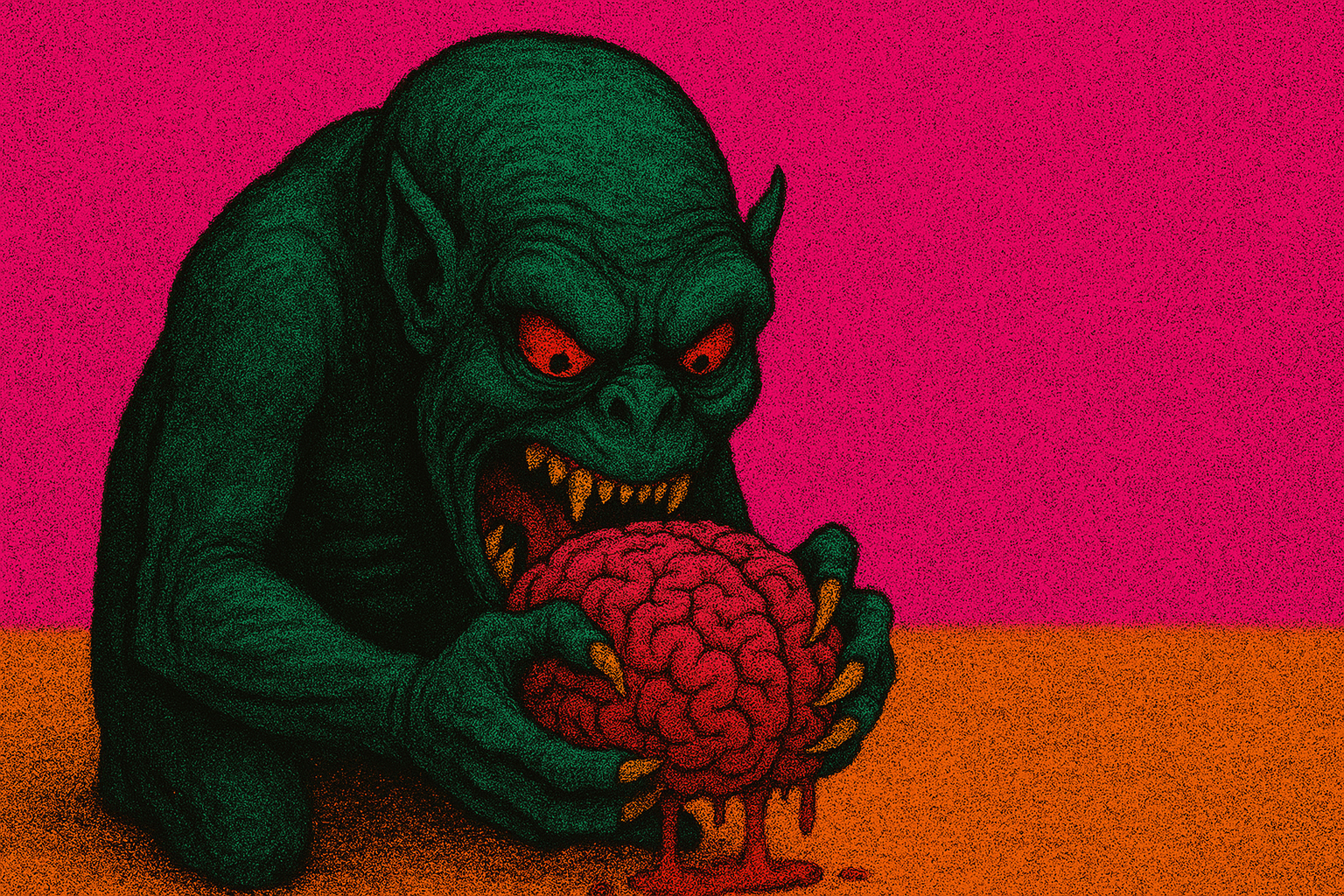AI is Eating Your Brain—Why AI Isn't Going to Take Your Job and Neither Is the Guy Using It

By Lorde Astor West Founder & CEO at RadHash
New studies show AI tools may be degrading human cognition, reducing productivity, and rewriting what “efficiency” really means.
When ChatGPT went viral, so did the promise: AI would supercharge productivity, eliminate grunt work, and give us more time to think, create, and live.
But as the first real data rolls in, a very different narrative is emerging—one that’s far less utopian.
🚧 Experienced Developers Are Slowing Down With AI
According to a new report by METR (Model Evaluation and Technical Research), seasoned software engineers using tools like Claude, Cursor, and Copilot performed 19% slower than their non-AI counterparts on familiar codebases. Just 44% of the AI-suggested code was ultimately accepted. Worse, nearly 10% of their time was spent cleaning up AI errors.
And yet—they felt more productive.
This cognitive dissonance is part of the trap. AI’s ability to generate code quickly creates a false sense of velocity. But beneath the surface, developers are being pulled into a slower, more error-prone workflow—one that’s harder to detect and even harder to measure.
🧠 Your Brain on AI: Less Engaged, Less Creative
Meanwhile, researchers at MIT strapped EEG monitors onto students and asked them to write essays—with and without ChatGPT. The results were stark: Those using AI showed the lowest brain activity, weakest neural connectivity, and least creativity.
The findings point to what neuroscientists are calling “metacognitive offloading”—when humans rely on AI to think for them, even when they’re fully capable of the task.
MIT researchers worry the long-term effects could include a degradation of memory, critical reasoning, and the brain’s ability to stay engaged with hard tasks—especially in students and knowledge workers who increasingly default to AI.
“It’s not just that the AI does the thinking for you—it changes how your brain functions, even after you stop using it.” — MIT Researcher, quoted in LaptopMag
🧮 Productivity vs. Perception
AI is also redefining what “productivity” means. A recent Wall Street Journal piece found that while workers using AI tools save nearly an hour per day, most don’t use it for rest or deeper work. Employers simply reallocate that time to more output.
This “productivity dividend” has created a paradox: AI gives us time, then immediately takes it back.
Instead of unlocking creative potential, AI tools are ushering in an era of “quiet acceleration”—where workers do more, think less, and feel increasingly burned out.
🌀 The AI Efficiency Flywheel (That Goes Nowhere)
From founders to freelancers, AI was meant to eliminate friction. But many are finding the opposite:
- AI outputs require human review.
- Human review requires mental bandwidth.
- Mental bandwidth is degraded by overuse of AI.
This circular dependency is leading some to coin a new term: The Efficiency Trap.
“We’re building tools to save time, only to realize the saved time is eaten up managing the tool itself.” — Cornelia Walther, Wharton School of Business
📉 What This Means for Builders
For startups, developers, and enterprise tech teams, the lesson is clear: AI isn’t a plug-and-play productivity gain—it’s a system shift. And like any shift, it introduces friction, new dependencies, and new failure points.
AI may still be a force multiplier for the right tasks, in the right context. But the assumption that it universally speeds things up is no longer tenable.
As the hype cycle wears off, founders and funders alike will have to grapple with the harder question: Are we actually building faster—or just pretending to?
Sources
- Business Insider: AI coding tools slow experienced engineers
- MIT Study via LaptopMag: Brain activity drops with AI use
- Tech.co: AI weakens critical thinking
- WSJ: AI saves time, then gives you more work
#SyntheticConfidence #CognitiveOffloading #AutomationBias #AIOveruse #IllusionOfEfficiency #TheEfficiencyTrap #PromptPoison #BrainOnAI #ThinkingLess #AIIsNotProductivity #MentalFatigue #AIAndCreativity #OverAIed #FutureOfWork #WorkTech #AIDebate #AIHypeCycle #TechBacklash #SmartToolTrap
10K Users to Gain Access to Hash aiOS
RadHash and Cloud Underground Partner to Deliver Sovereign Infrastructure for Hybrid, Self-Hosted AI-Native Applications to user base
🚨 Read
🔧🚀✨
Build Your Startupverse™
Own Your Digital Economy
Web App Made with RadHash
RadHash LTD - a Delaware Company EST 2023